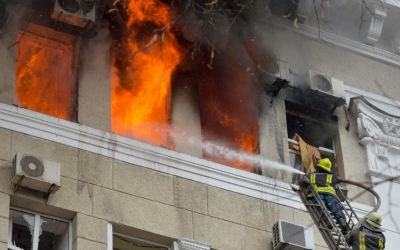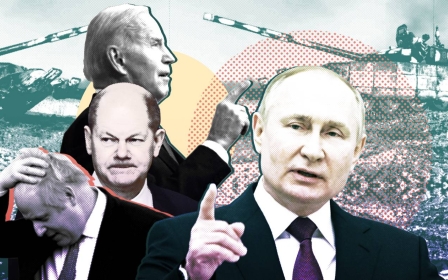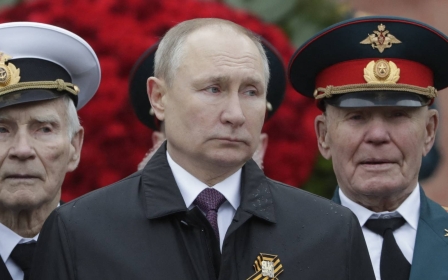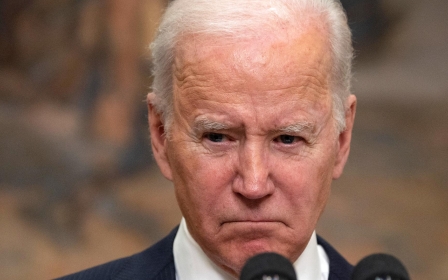Russia-Ukraine war: Turkey's power over the Black Sea explained
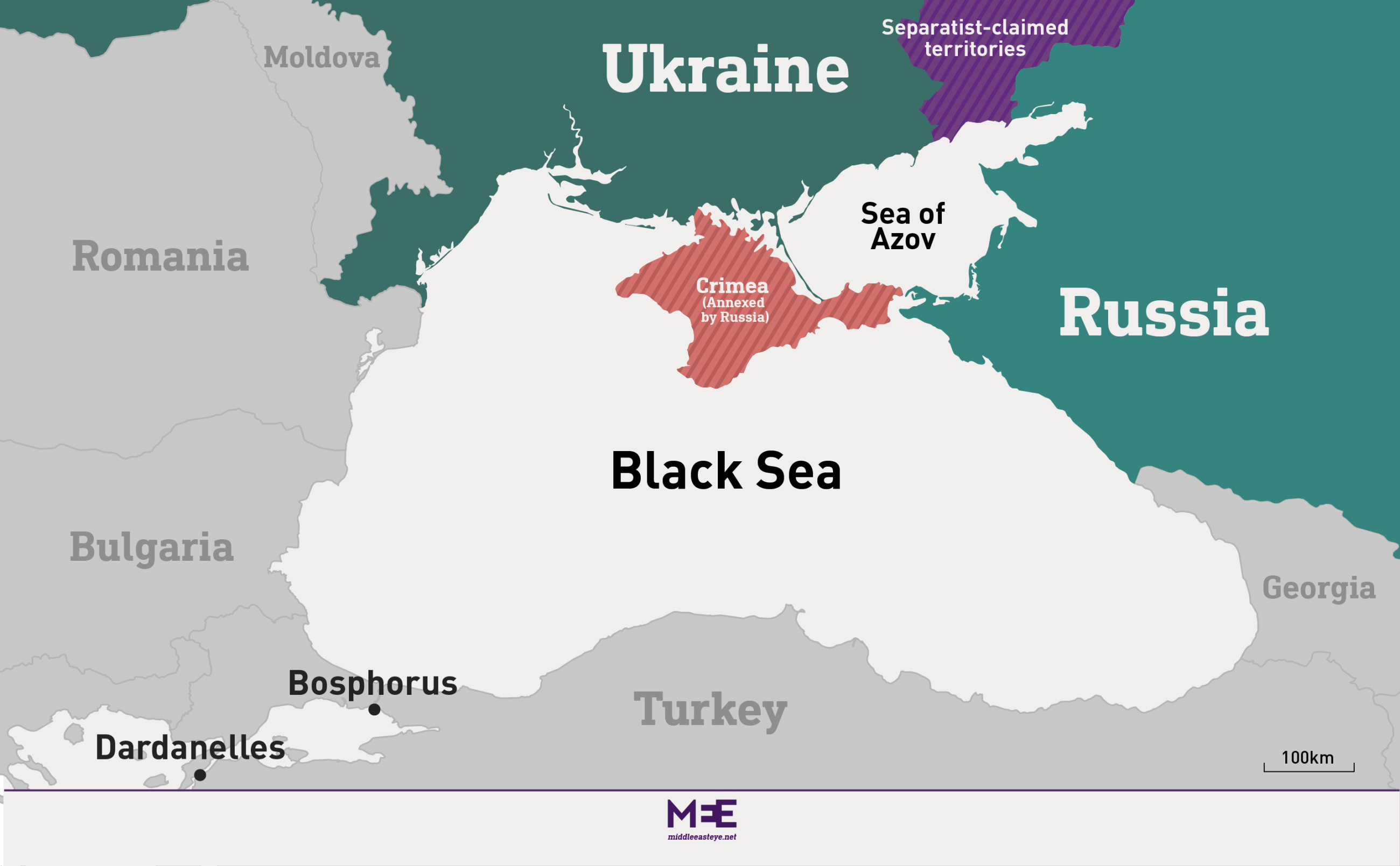
Hours after Russia launched attacks on Ukraine on Thursday, Kyiv asked Turkey to close the Bosphorus and Dardanelles straits to Russian ships.
Under the 1936 Montreux Convention, Turkey has control over the passage of vessels between the Mediterranean and the Black Sea, making it an essential player in the current conflict between Ukraine and Russia.
Here's more on the convention and its implications for the Russia-Ukraine conflict:
What the convention says
In 1936, world powers including the United Kingdom, the Soviet Union and France agreed in Montreux, Switzerland that Turkey would control the Bosphorus and Dardanelles as a result of its close proximity to Russia, Ukraine, Romania, Bulgaria and Georgia on the Black Sea.
New MEE newsletter: Jerusalem Dispatch
Sign up to get the latest insights and analysis on Israel-Palestine, alongside Turkey Unpacked and other MEE newsletters
In addition to control of the straits, the convention gives Turkey power to regulate the transit of naval warships, including closing the straits to all foreign warships during wartime.
Turkey can also deny passage to merchant ships if they are from countries at war with Ankara.
All Black Sea countries, including Russia, Ukraine, Bulgaria, Romania and Georgia, wishing to send vessels through the straits must give Turkey eight days' notice. In comparison, non-Black Sea countries must notify 15 days in advance.
However, Black Sea countries can send submarines without prior notice, as long as they have been built, purchased, or sent for repair outside the Black Sea.
The Turkish government must also authorise aircraft if they cross over the straits.
During the Second World War, the convention prevented the Axis powers from sending naval forces through the straits to attack the Soviet Union.
Turkey's stance so far
As tensions have flared in recent weeks between Ukraine and Russia, Turkey has said that the Montreux convection is instrumental in keeping regional peace.
President Recep Tayyip Erdogan has said that Turkey will do whatever is necessary as a Nato ally if Russia invades - without further elaboration.
While Turkey is reliant on Russia for energy and tourism and has developed close cooperation with Moscow in recent years, it has also sold drones to Ukraine and called Russia's moves against Ukraine unacceptable.
But Erdogan has said that Turkey will try to manage any conflict between the two nations without abandoning ties with Russia or Ukraine.
Middle East Eye delivers independent and unrivalled coverage and analysis of the Middle East, North Africa and beyond. To learn more about republishing this content and the associated fees, please fill out this form. More about MEE can be found here.


